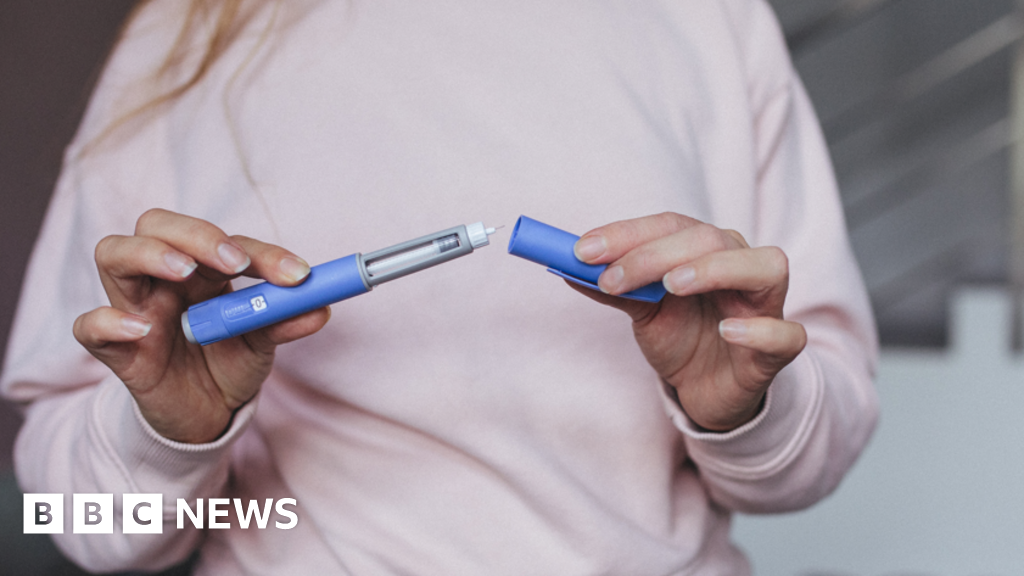

Thousands of people from some of Scotland’s most deprived areas are to be offered free weight-loss jabs as part of government-funded research.
Up to 5,000 people in Scotland will take the injections as part of the multi-million pound study being led by Glasgow University.
The findings will provide insight into the lives of people living with obesity and health inequalities across the UK.
If successful, it could lead to a wider rollout of the injections throughout the country.
The jabs copy or boost the effects of natural hormones called incretins, which control blood sugar levels.
They act on areas of the brain which impact hunger and appetite and can slow down how fast the stomach empties. This may help people living with obesity regulate their eating habits.
The UK government has provided an initial £650,000 for the Scotland CardioMetabolic Impact Study (SCoMIS).
As a leading cause of long-term illness such as heart disease and cancer, tackling obesity will help millions live longer healthier lives and reduce the pressure on health services, potentially saving the NHS billions annually.
UK Health Innovation Minister Dr Zubir Ahmed said: “As a practicing NHS surgeon and Glasgow MP, I know firsthand the impact of the obesity crisis that plagues Scotland – and the litany of health problems it leads to.
“More than 1 in 3 adults in Scotland’s most deprived areas are living with obesity. The UK government is committed to tackling inequality wherever it finds it in our country.
“It’s why this landmark UK government investment is targeting help where it’s needed most in Scotland and meeting people where they are and backing helping the NHS services they trust to treat them.”
Aims of the study:
- To test how weight‑loss medicines can be delivered effectively and fairly in everyday NHS care.
- To measure the level of weight loss and improvements in quality of life, particularly for patients in disadvantaged areas.
- To examine the impact on obesity‑related illness, NHS use, and overall healthcare costs.
- To explore whether better health through weight loss can help people stay in work, reduce sick leave, and take a fuller part in society.
Jason Gill, professor of cardiometabolic health at Glasgow University, who is leading the study, said: “While tackling obesity requires multifactorial public health action, incretin therapies add a powerful new tool to the national obesity strategy.
“The burden of obesity is greatest in the most deprived segments of society and the status quo risks widening health inequalities.
“SCoMIS aims to be a landmark real‑world study evaluating a new model of obesity care, providing incretin treatment via primary and community care to Scottish adults living with obesity, with a focus on those in the most economically deprived communities.”
‘Cutting-edge research’
Jenni Minto, Scottish minister for public health, said the Scottish government was proud to be leading the way in tackling obesity through innovation and collaboration.
“This study places patients and communities at the heart of cutting-edge research into weight-loss medicines, ensuring we build the evidence needed to deliver the greatest benefit to those who need it most,” she said.
UK Science Minister Lord Vallance said: “Scotland has always been at the forefront of medical innovation and public health, and this initiative is further proof of the world-class expertise that can be found here.
“By learning how these weight-loss medicines work, and how we can support them to reach our most deprived areas, we can slash health inequalities in Scotland and the rest of the UK so that our obesity strategy delivers a real, lasting change.”
The study, which will be launched next year, also involves industry leaders Novo Nordisk and IQVIA, as well as clinical leaders at the Universities of Dundee and Edinburgh.
They will work out how to make best use of AI driven digital technologies to support patient access, engagement and data collection.
The study will involve 3,000 to 5,000 Scottish patients living with obesity who will benefit from the medicines the most.

